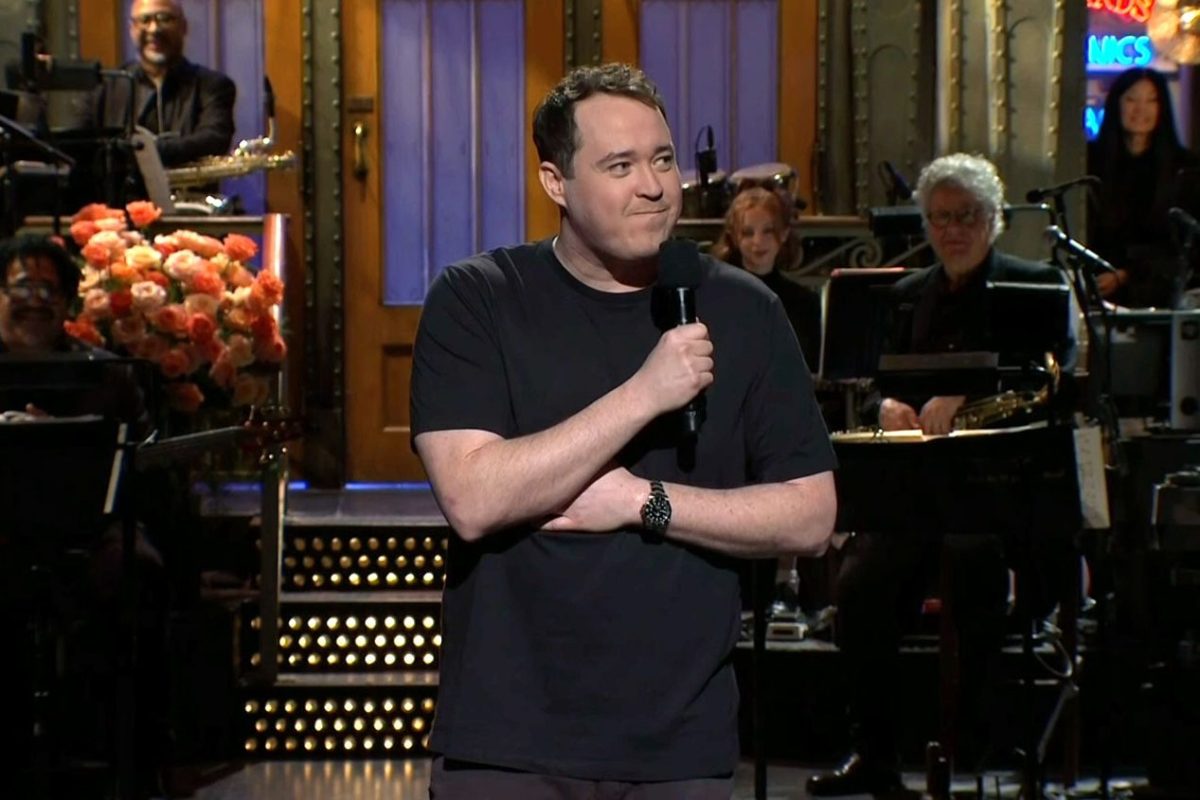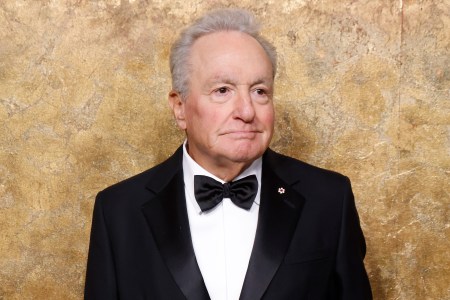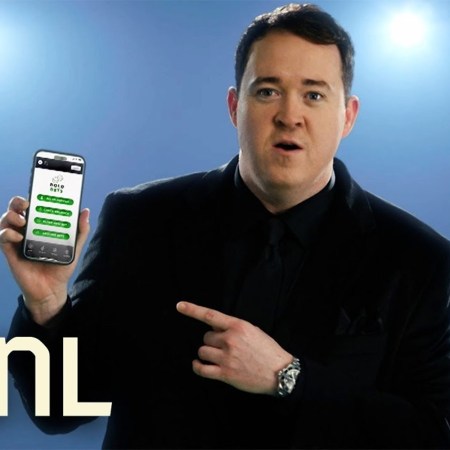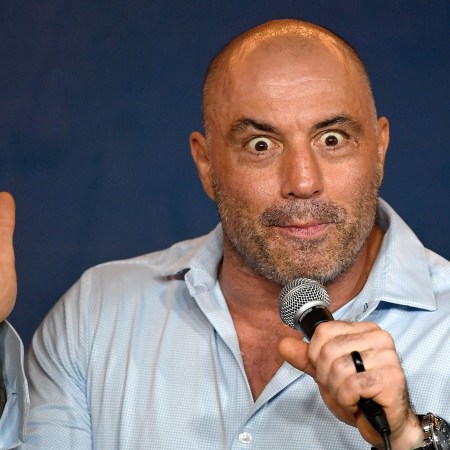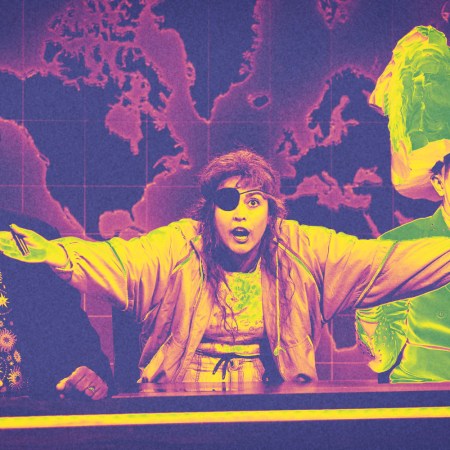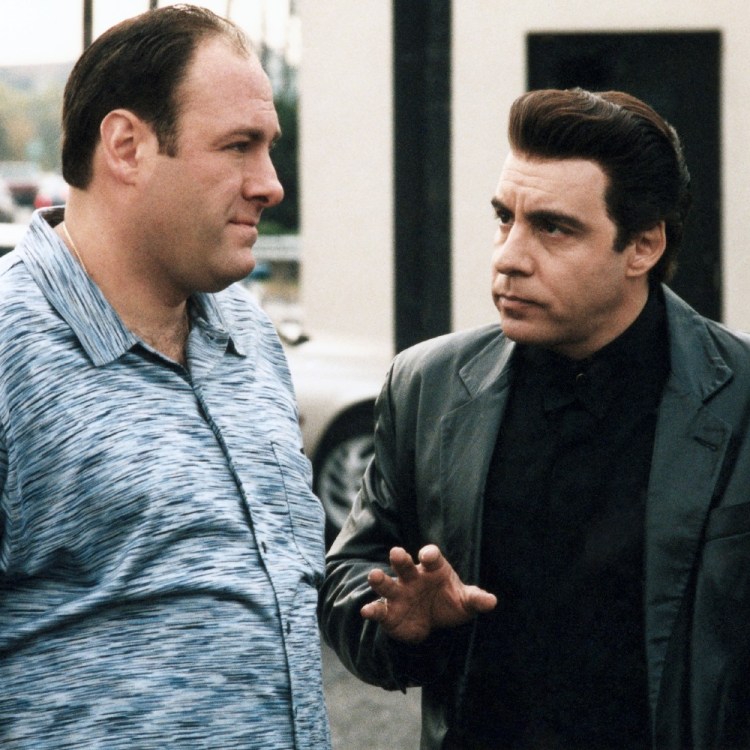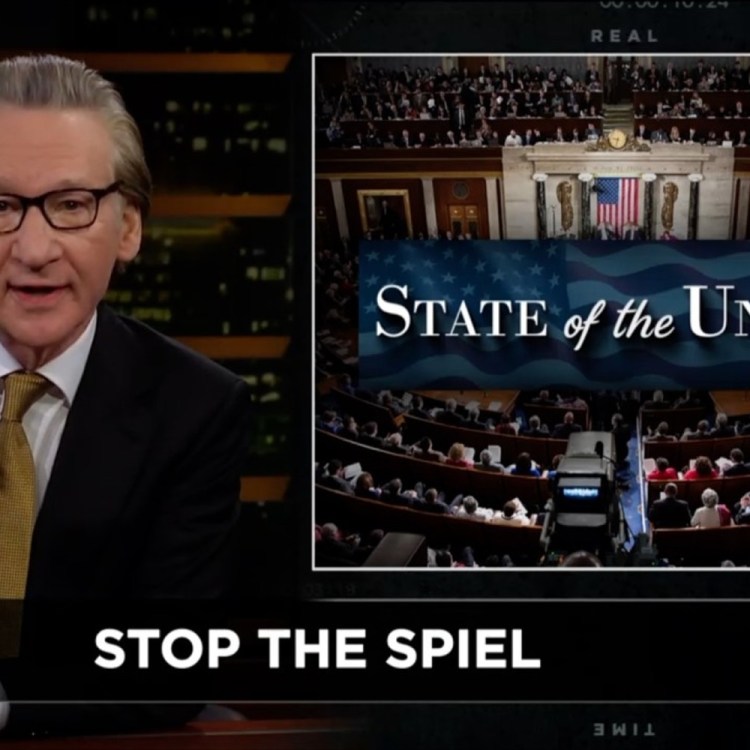Nearly five decades of Saturday Night Live history means that there have been plenty of guest hosts embodying a kind of what-if alternate history of the show. This includes alumni who became more popular following stints on the show that limited their on-camera time, only to come back as triumphant hosts (like Tina Fey or John Mulaney); those who auditioned for the show at various stages but never got on, then hosted as super-famous actors (like Jim Carrey or John Goodman); and performers who take so well to the format that you wonder if they could have made it there on another career track (like Emma Stone or, weirdly, Adam Driver). But rarely is one of these what-if gigs as vivid as this weekend’s not-exactly-return engagement from comic Shane Gillis.
Gillis has the distinction of having been hired by SNL without his name ever appearing in the credits, because shortly after the 2019 announcement that he’d be joining the cast (along with then-newbies Bowen Yang and Chloe Fineman), a journalist surfaced instances of him using racial slurs and relatedly questionable “comic” material on his podcast. After a shruggy non-apology, and before the season actually began, Gillis was let go by the network, essentially apologizing for failing to properly vet their new hire. (In their defense, who among us is paid enough money to listen to every episode of anything called “Mike and Shane’s Secret Podcast”?) This gave Gillis a certain amount of cred among the kinds of comics and comedy fans whose chief concern is the comedian’s sacred ability to “take risks” and say whatever they want, because, of course, comedy is famously built on off-the-cuff invocations of racial slurs. Gillis doing a “funny” Chinese accent is basically Richard Pryor in 1979; possibly-pretending to be racist by saying racist stuff was George Carlin’s fondest freedom-of-speech hope.
So Gillis kept doing his podcast, recorded a couple of popular comedy specials for YouTube and Netflix, and, nearly five years after the initial kerfuffle, was booked to host Saturday Night Live, appearing for the first time on the show that once hired him. It seems like a confusing move until you learn a little more about whose call it was to nix him in the first place: What was half-lauded at the time as an increasingly rare sensible Lorne Michaels decision has since been described by Gillis as more of a network concern. It seems like if Michaels had his druthers, Gillis probably would have weathered the bad PR and stayed on the show. This week’s episode offered a glimpse at what that show might have looked like.
It Might Be Time for Lorne Michaels to Retire
Having Shane Gillis host “Saturday Night Live” is just the latest in a string of bad decisionsIt’s a distorted look, of course; not even a workhorse like Mikey Day appears in almost every sketch the way most contemporary SNL hosts typically do. It’s also foolhardy to ascribe too much of an individual episode’s sensibility to the host. There have been episodes hosted by comedians with sketch-writing experience, like Mulaney or Amy Schumer, where I would have sworn that at least a couple of the segments must have been brought in by the host, only to find the individual writing credits that circulate in the SNL fandom and learn that this was less prevalent than I assumed. The host can help get certain pieces on the air, though, and something about a stand-up comic’s persona will shine through in certain episodes; that was certainly true in Nate Bargatze’s episode, a highlight of the season so far. The Shane Gillis Show wasn’t exactly live from an alternate universe, but still felt different from a movie star dropping by to plug their latest work.
Gillis introduced himself with a proper stand-up monologue, self-effacingly admitting that most people watching probably weren’t aware of him, much less his checkered past with the show. (“Don’t look that up; it’s fine, don’t even worry about it.”) He then went into material from his act, but it never really built up steam. Some of the halting tone was self-inflicted: Gillis’s habit of interrupting himself with a chuckle is visible in his stand-up specials, and it can be an endearing part of a stage persona. Here, it wound up feeling like nervous punctuation, alongside his regular references to some of his jokes not landing in the room. It didn’t help that he would let so many riffs trail off prematurely, like his description of how he looks like a high school football coach, or his observation that little boys can function as their mother’s gay best friend until early adolescence. Without really digging into the specifics of the latter, the routine fell into stereotyping and some masturbation jokes. His material about members of his family with Down Syndrome felt almost obligatory: Some potentially controversial material he had to do because he happened to have an in, without even the thought-experiment electricity of, say, disgraced comic Louis C.K. (a Gillis defender, naturally).
Gillis’s attempts at goofing on himself felt particularly connected to a certain off-putting dynamic in some of the episode’s sketches, where comedy possibly intended as self-deprecating came across a little coarser and nastier. Occasionally, Gillis hit the right note of doofus-y absurdity, like a sketch about HR training where he played a guy attempting to treat the fleeting permission to ask a co-worker out once as a maneuverable and accruable benefit, like sick time or vacation days. But not all five-minute doofuses are created equal. What the hell inspired a sketch where Gillis played the loser high school classmate of Forrest Gump at their 20-year reunion, unable to believe that the kid he used to pick on has become a huge success (and, separately, that many of the important people in Forrest’s life are dead)? And the successive late-episode sketches about sex dolls for “below-average” guys and a man getting targeted ads for a highly specific butt plug felt like something out of the show’s mid-’90s low point, where enduring some kind of perceived sexual humiliation passed for a comedy gauntlet. Even an amusing fake ad for “Rock Bottom Kings,” an app allowing gamblers to place bets on their most grievously addicted gambler friends, had kind of a Barstool Sports vibe, unable to resist underlining that it’s funny to see a friend in so much trouble, get it? (Sort of making the subtext into text, there, huh?)
It would be a stretch to qualify much of this as actual provocations — only, as in his stand-up sampler, a smirky kind of laziness. That quality certainly isn’t unfamiliar to SNL, which makes Gillis not so much at odds with the show’s sensibility as a bad imitation of its comfort zone. It also makes the hype around him — whether positive from fans insisting this guy really has the juice or negative from those who wish that his whole career had stayed secret — feel curiously meager. So this is the kind of comic material that required some dabbling in racial slurs? And this is the guy Michaels felt it was deeply important to mend fences with? Does he also periodically reach out to Jeff Richards? (That’s the surest sign that firing Gillis wasn’t a Michaels call; if it were, he probably wouldn’t be willing to contradict it.)
Of course, SNL is supposed to be a big tent, and it may not be fair to yoke together the show’s sensibility with one comic’s hosting gig (or one producer’s quest to all-sides every issue). Gillis will not host every week. He probably won’t even host almost every season, as Mulaney has in recent years. For all the eyes on how the show’s first Chinese-American cast member, hired at the same time as Gillis, might react to his presence on the show, Bowen Yang and Gillis embraced during the show’s goodnights (they’ve also followed each other on Instagram for a while now). Mostly, maintaining a connection to Gillis reflects Michaels’ recent fascination with getting stand-ups back on the show in full force, as both cast members and guests, after years of drawing largely from the world of improv. In some ways, it’s admirable that Michaels doesn’t try to simply replicate the success of Kristen Wiig and Kate McKinnon by scouring the Groundlings for poor-man’s “next” versions of them, and he’s certainly found some success through the personality-driven material of Leslie Jones and Pete Davidson, who both popped on the show in a way that some more traditional sketch performers probably couldn’t. It can be thrilling when SNL unexpectedly bends to accommodate some voices, rather than grinding them into its formula.
Yet Michaels also seems to hold a misguided faith in stand-up comedians’ own self-mythology as truth-tellers, especially those who claim a spot on frontlines of pushback against wokeness. Over on that “secret podcast” he still has, Gillis likes to throw it around with Holocaust deniers — again raising the question of how precisely this connects to the spirit of truth-telling and openness. It suggests Gillis does value the comedian’s willingness to say anything — not out of any particular bravery or insight so much as a half-assed acceptance of whatever pops into your head. I can’t say for sure whether Gillis truly holds hate in his heart or truly believes in good-naturedly mock-offending anyone and everyone. As it turns out, his sense of humor isn’t interesting enough to spend much time wondering.
This article appeared in an InsideHook newsletter. Sign up for free to get more on travel, wellness, style, drinking, and culture.
